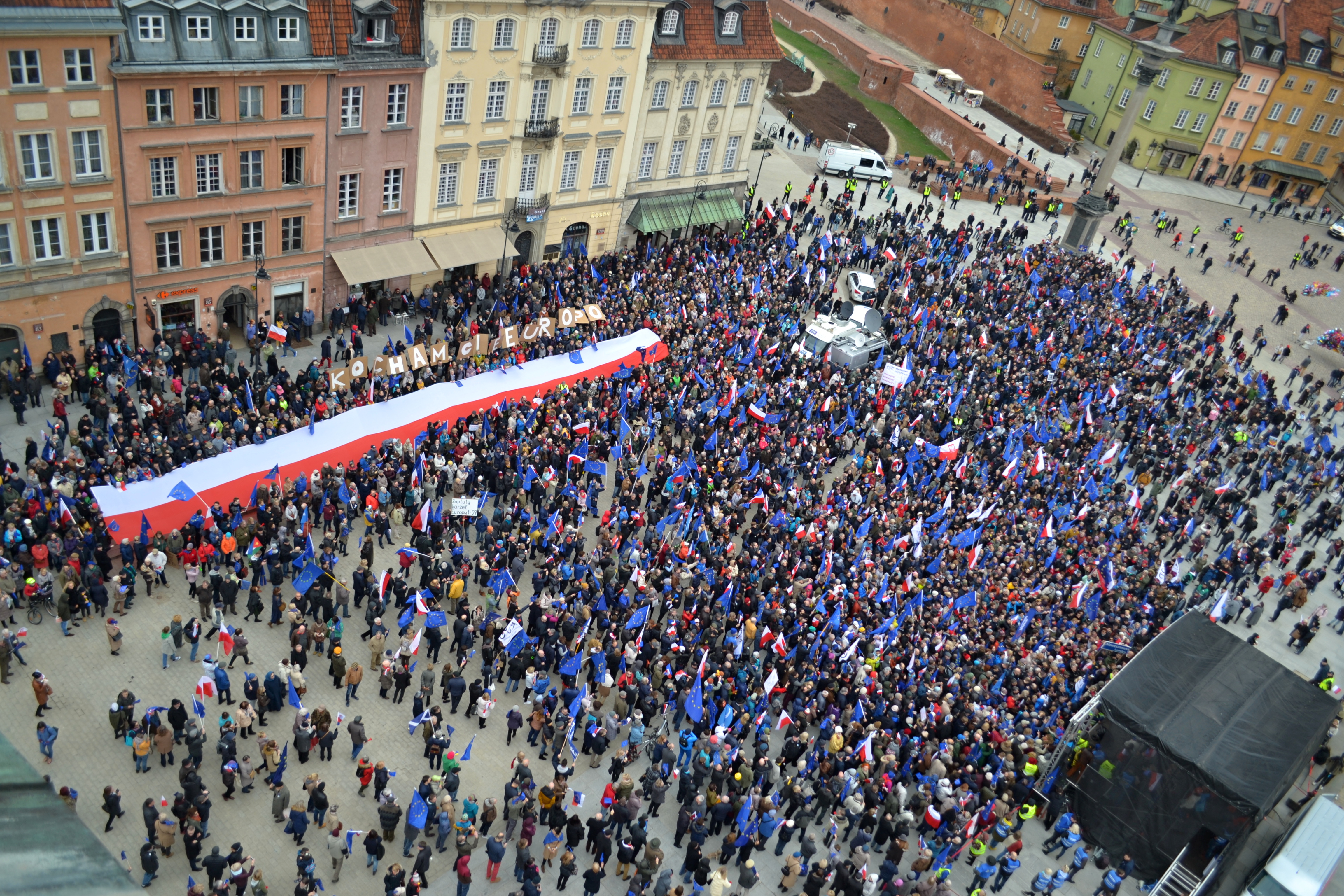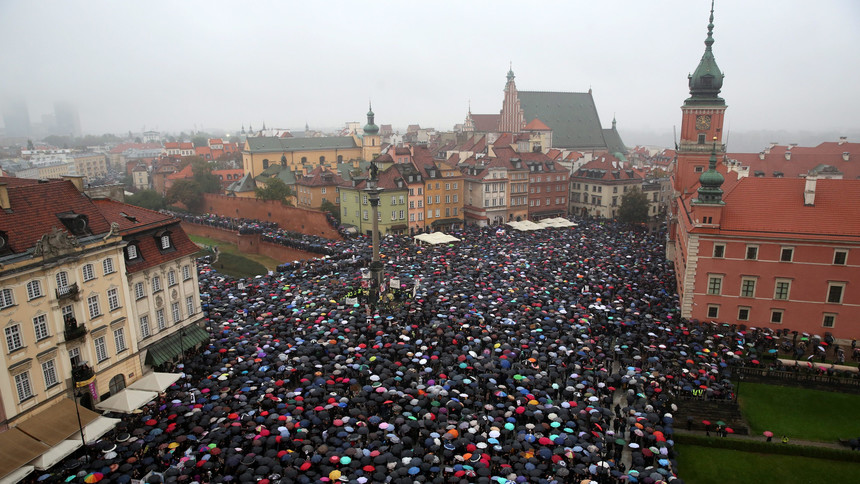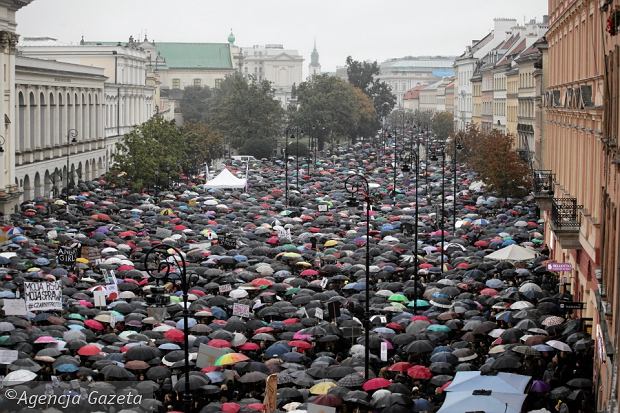How to Stage a Huge Protest
After writing yesterday’s post on the celebration of the EU’s 60th anniversary in Poland, I went back to compare photos taken during last October’s pro-choice march and last Saturday’s pro-EU march. The differences are stark. Here was the scene last weekend:

And here’s a photo from the same vantage point last October:

The difference is even greater than it might appear, because the bottom picture captures only a fragment of the crowd, which extended as far as the eye could see in all directions.

And this was despite the fact that the weather for that earlier protest was atrocious: rainy and only a few degrees above freezing. The weather last Saturday was dry and only a bit chilly–for March in Warsaw, that counts as a nice Spring day.
So why the difference?
Whatever your views on abortion, the issue is specific and concrete. The underlying principles are abstract, involving the definition of “human life,” the complex symbiotic nature of pregnancy, the extent of individual sovereignty, and whether there should be legal control over a woman’s reproductive capacity. But none of that was what inspired a few hundred thousand people to join a march in the freezing rain. They were there because the government was threatening, at that very moment, to take away the (already tightly regulated and limited) right to have an abortion.
It isn’t hard to make the argument that broad principles have vital real-world consequences, and that political structures matter. Nonetheless, those sorts of issues involve, for most people, several leaps of imagination in order to link the general with the specific. Many people are deeply upset that the Polish judicial system has been stripped of power and that the government will henceforth decide for itself whether to adhere to the Polish constitution, and what that adherence entails. But so far, the overwhelming majority of Poles can go about their lives just as they did two years ago, when an independent constitutional court still existed.
Those of us who care about general ideals and large-scale political causes all too often look down on those who don’t see the importance of these matters. We were inspired by Václav Havel’s call to “live in freedom,” and we rebuke those who engage in the countless acts of quotidian collaboration that sustain oppressive regimes. But the disturbing truth is that what we see as lamentable political disengagement and apathy is, for the vast majority of people, a sensible prioritization of the things that matter in life: family, friends, work, play….
We cannot and probably should not expect masses of people to turn out for protests in defense of “democracy” or “liberty.” On the one hand, this means we shouldn’t be disappointed when political demonstrations are relatively small. On the other hand, it also means that we shouldn’t expect those demonstrations to have much of an impact. The point now is to proclaim the values of liberal democracy as loudly as possible, even though we know that this won’t accomplish anything in the short term. If we are correct that these values are the necessary prerequisites for a world that’s truly better for everyone, then sooner or later an issue of intimate, concrete immediacy will emerge. Then and only then will the crowds really turn out. Then and only then will the authoritarian regimes weaken. It might take a while, but it will happen.